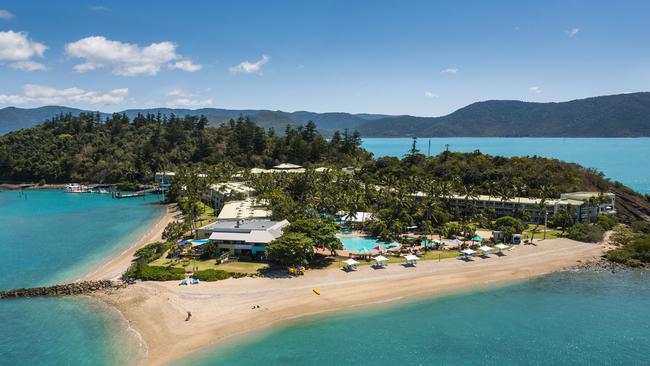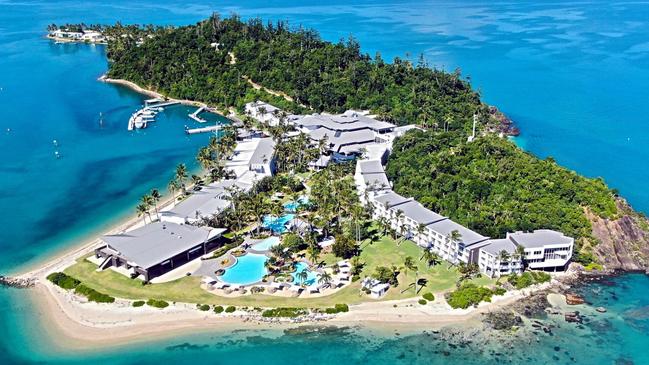Aaron Schokman wins $431k lawsuit over Daydream Island pee incident
An island resort staffer will receive a $430,000 payout from his former employer after his drunken roommate’s conduct. Find out what happened.
Police & Courts
Don't miss out on the headlines from Police & Courts. Followed categories will be added to My News.
A Whitsunday resort food and hospitality staffer will receive a $431,000 payout from his former employer after his roommate drunkenly urinated on his face.
Aaron Schokman had been hired as a food and beverage manager on Daydream Island in late 2016 and was allocated employee accommodation, which he lived in by himself until workmate Sean Hewett moved in.
In the early hours of November 7, 2016 Mr Schokman woke to Mr Hewett vomiting in their shared bathroom before the former went back to sleep.
In a Court of Appeals judgment Justice Philip McMurdo said Mr Schokman went back to sleep “before waking with a distressing sensation of being unable to breathe”.

“He then realised that Hewett was standing over him and urinating on his face,” Justice McMurdo said.
The judgement stated Mr Schokman yelled for Mr Hewett to stop and after a short time the latter went to the bathroom emerging soon after to apologise.
“Almost immediately Mr Schokman suffered a cataplectic attack. He had been previously diagnosed as suffering from cataplexy, which is a sudden and usually brief loss of voluntary muscle tone triggered by strong emotions,” Justice McMurdo said.
“He had also been diagnosed with a condition called narcolepsy, which is a sleep disorder characterised by daytime drowsiness and sudden attacks of sleep.”
About 90 minutes before Mr Hewett had returned to the room after drinking at the staff bar and was visibly upset and “making complaints about his work environment”, the judgement said.
Mr Schokman was Mr Hewett’s direct supervisor and told him they could discuss those issues on the next day.
Mr Hewett accepted this and left their room taking some drinks with him before returning again at 3am when the urination incident occurred, the judgment stated.
As a result of the incident Mr Schokman was found to have suffered a post-traumatic stress disorder, “which had improved considerably but had left him with an adjustment disorder with mixed anxiety and depressed mood”, the judgement stated.
Mr Schokman tried to sue his former employer CCIG Investments Pty Ltd over the incident alleging the latter had breached its duty of care to him, but the trial judge rejected the lawsuit.

The trial judge had concluded the incident had not occurred in the course of Mr Hewett’s employment and as such CCIG Investments was not vicariously liable.
The judge also found Mr Hewett was “so drunk that he was mistaken as to where he was”, the judgment stated.
But Mr Schokman has appealed the decision.
The judgment found Mr Schokman and Mr Hewett were required to sign a tenancy agreement, which provided they take reasonable care that any acts “did not adversely affect the health and safety of other persons”.
“It was a term of Hewett’s employment that he reside in the staff accommodation on the island, and more particularly in the room assigned to him,” Justice McMurdo found.
“The terms of his employment required him to take reasonable care that his acts did not adversely affect the health and safety of other persons. That was an obligation which governed his occupation of this room.
“He was not occupying the room as a stranger, but instead as an employee, pursuant to and under the obligations of his employment contract.
“There was in this case the requisite connection between his employment and the employee’s actions. The respondent should have been held to be vicariously liable for his negligence and the loss which it caused.”
Justice McMurdo found Mr Schokman’s case of vicarious liability should have been upheld and awarded him $431,738.88.





